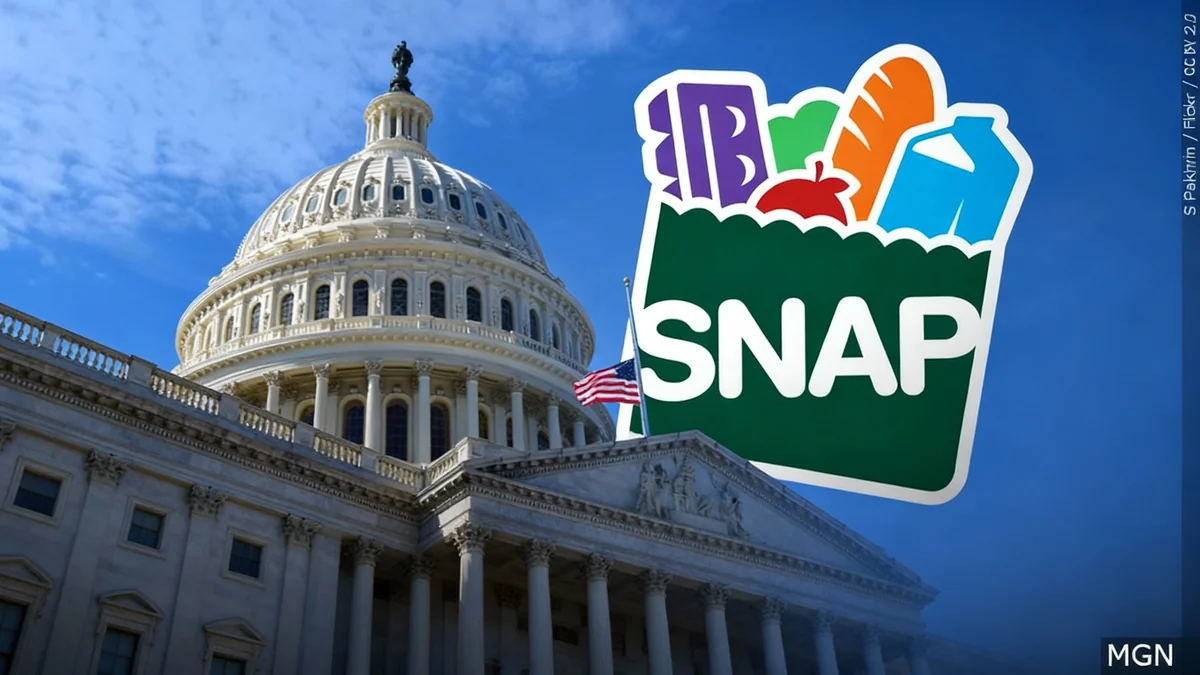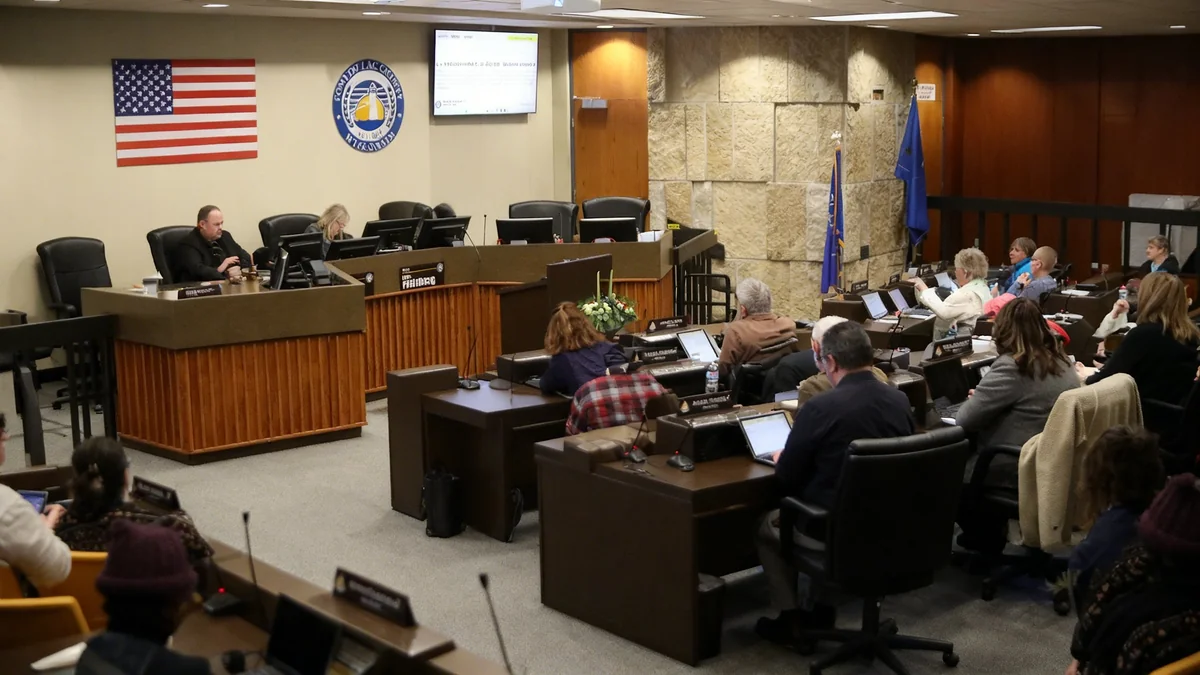The Nebraska Department of Health and Human Services (DHHS) has announced significant changes to the Supplemental Nutrition Assistance Program (SNAP) eligibility requirements, stemming from new federal mandates. These updates, which affect work rules, utility allowances, and non-citizen eligibility, will take effect on October 20, 2025, for all new applicants.
Households currently receiving benefits will see these changes applied during their next recertification period or when they report other household updates. The DHHS has stated it is awaiting further guidance from the federal government, which has been delayed by a government shutdown, but aims to implement the new rules as smoothly as possible.
Key Takeaways
- New federal rules will change SNAP eligibility in Nebraska starting October 20, 2025.
- Work requirements are expanded to include adults aged 18 to 64, an increase from the previous 18 to 54 age range.
- Veterans, homeless individuals, and former foster youth are now subject to work requirements, while some Native American populations are now exempt.
- Rules for automatic utility allowances and eligibility for non-citizens have become more restrictive.
Expanded Work Requirements for SNAP Recipients
A central change in the new federal guidelines involves the work requirements for Able-Bodied Adults Without Dependents (ABAWDs). The age range for individuals subject to these rules has been broadened significantly.
Previously, the requirements applied to individuals aged 18 to 54. Under the new rules, this has been extended to cover adults between the ages of 18 and 64. These individuals must meet specific work-related criteria to maintain their SNAP benefits.
To comply, recipients must either work, participate in an approved employment or training program, or volunteer in their community for a minimum of 80 hours per month, which averages out to 20 hours per week.
Who is Affected by the New Work Rules?
The updated regulations redefine who is considered an ABAWD, removing exemptions that previously protected certain groups. This means more individuals will now need to meet the monthly 80-hour work activity threshold.
Notable groups now subject to these requirements include:
- Veterans of the U.S. Armed Forces.
- Individuals experiencing homelessness.
- Young adults aged 18 to 24 who have aged out of the foster care system.
Additionally, the rules for parents have been adjusted. Previously, able-bodied parents were subject to work requirements once their youngest child turned 18. This has now been lowered, and the rules will apply once their youngest child turns 14 years old.
Background on ABAWD Rules
The Able-Bodied Adults Without Dependents (ABAWD) rules are a component of federal SNAP law designed to encourage work among non-disabled adults who do not have dependent children. Generally, these individuals are limited to three months of SNAP benefits in a 36-month period unless they meet the work requirements. States can request waivers for these time limits in areas with high unemployment, but the recent federal changes have tightened the criteria for such waivers.
While many exemptions have been removed, a new one has been added. According to the DHHS, individuals who are members of Indian tribes and eligible for services through the Indian Health Service are now exempt from the ABAWD work requirements. This reverses the previous policy where they were subject to them.
Changes to Utility Allowances and LIHEAP
The new federal rules also alter how utility costs are factored into SNAP benefit calculations, specifically for households that receive energy assistance.
Previously, households receiving a qualifying payment from the Low Income Home Energy Assistance Program (LIHEAP) were automatically granted the Standard Utility Allowance (SUA). The SUA is a standardized deduction that simplifies the process of accounting for utility expenses like heating and cooling.
Under the new guidelines, this automatic eligibility is now restricted. Only households that receive a LIHEAP payment and also include an elderly or disabled member will automatically qualify for the SUA.
What is the Standard Utility Allowance (SUA)?
The SUA is a fixed amount used to calculate a household's shelter costs for SNAP eligibility. It helps reduce the paperwork burden for both applicants and case workers by using a standard figure instead of requiring families to document every single utility bill. Losing automatic access to it means some households will need to provide more documentation to receive a deduction for their utility costs.
Households that no longer qualify for the automatic SUA may still be able to claim a different utility allowance. However, this will depend on their actual documented utility expenses, potentially requiring more paperwork during the application and recertification process.
Stricter Eligibility for Non-Citizens
The federal update introduces more restrictive criteria for non-citizens seeking SNAP benefits. The list of eligible immigration statuses has been narrowed, which will result in some individuals losing access to food assistance.
According to the DHHS, SNAP eligibility is now limited to non-citizens who reside in the United States and fall into one of the following categories:
- Lawfully admitted for permanent residence (Green Card holders) with no intention of abandoning their residence in a foreign country.
- Designated as Cuban and Haitian entrants.
- Allowed to live and work in the U.S. under the Compacts of Free Association (COFA).
This revised list explicitly removes eligibility for several groups who could previously qualify for SNAP benefits. Notably, individuals who have been granted refugee status or asylum are no longer eligible under these new federal rules.
The department has not specified how many current recipients will be affected by this change but acknowledges that some individuals may lose their benefits.
Resources for Affected Residents
Recognizing that these changes may cause hardship for some Nebraskans, the DHHS is directing residents to external resources for support. The department encourages anyone who may lose benefits or face difficulties to seek alternative assistance.
"For those who may lose benefits, other resources are available. Residents can call 211 or visit 211 Nebraska’s website... 211 is a one-stop source of information for people in need of assistance," the DHHS stated in its release.
The 211 Nebraska service, operated by the United Way, connects individuals with a wide range of local programs, including food banks, community services, and other governmental aid. Trained specialists assess a caller's situation and refer them to the most appropriate resources in their extensive database.
The DHHS has also created a dedicated page on its website with additional information and a Frequently Asked Questions (FAQ) section to help residents understand the new rules. The department has pledged to provide further updates as it receives more detailed guidance from the federal government.




